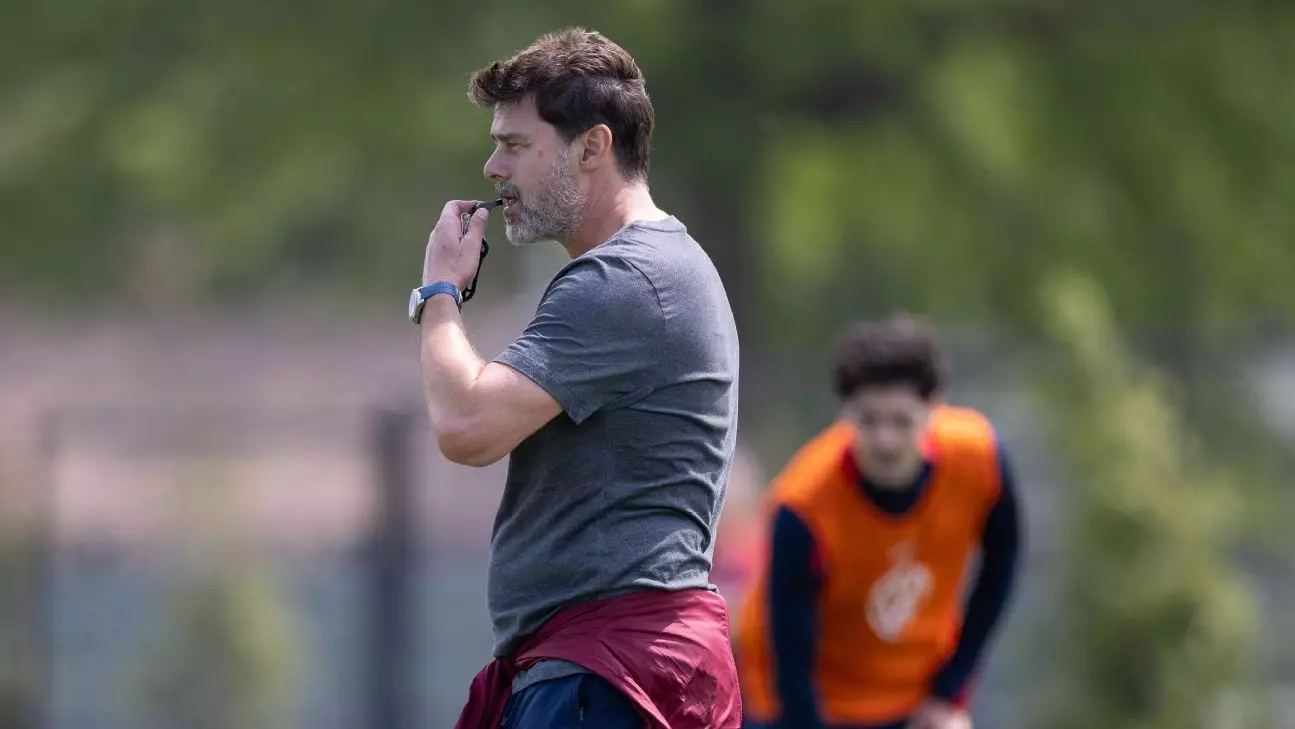In a landscape where anticipation meets adversity, United States Men’s National Team (USMNT) head coach Mauricio Pochettino navigates the complexities of preparing for the Concacaf Gold Cup amidst significant player absences. These challenges, stemming from injuries, club commitments, and fatigue, threaten to alter strategies that were initially envisioned for optimal performance. However, Pochettino remains unfazed, emphasizing the necessity to adapt without dwelling on unfavorable circumstances. His assertion is not merely a soundbite; it is a vital leadership principle urging both the squad and fans to maintain focus on the present.
The absence of key players like Christian Pulisic, Antonee Robinson, and Weston McKennie could lead many to despair regarding the team’s competitive capacity. Yet, Pochettino reminds us that adversity can be a catalyst for discovery. The opportunity to bring in players who may otherwise remain on the sidelines may unlock untapped potential within the roster. By trusting in the team’s depth, he cultivates an environment rich with possibility, allowing lesser-known talents to assert their ambitions and carve a path toward the World Cup.
A Platform for New Talent
One of the central themes resonating through Pochettino’s approach is the concept of opportunity. The roster for the Gold Cup comprises seven uncapped players, signifying a departure from relying on established stars to ignite a new generation of talent. This shift offers not only a chance for players to showcase their skills on an international stage, but it potentially reinvigorates the entire squad’s dynamics.
When players seize their moment, the ripple effects can be profound, shifting the team’s trajectory. It can energize the fanbase, instill confidence, and provide young athletes with a quintessential experience on which to build their careers. Pochettino’s vision encourages these players to embrace the notion that they are not merely placeholders in the roster, but vital components of a larger journey.
Mindset and Professionalism
The tempering of talent through mental fortitude is another cornerstone of Pochettino’s ethos. Tyler Adams, the team captain, reflects this perspective by highlighting the imperative to maintain a clear mindset. Pochettino’s focus on fostering a professional environment transcends tactical discussions; it encompasses the holistic development of players. The ideals of hard work, enjoyment, and accountability are not mutually exclusive but intertwined, allowing players to develop not only as athletes, but as individuals.
Pochettino’s insistence on achieving the right balance between rigorous training and downtime serves a dual purpose. It not only cultivates physical readiness, but it reinforces mental alertness—an often-overlooked aspect of peak performance. Understanding that recovery times can significantly impact a player’s ability to perform at their best intersects with the realities of international competition.
Setting a New Precedent
This Gold Cup presents not just a chance for a trophy, but an opportunity to redefine the identity of the USMNT. Pochettino’s willingness to embrace unconventional strategies—fielding an inexperienced squad while still demanding excellence—challenges the very foundation of what has historically defined American soccer. His approach encourages a broader understanding of team dynamics, suggesting that talent can emerge from unlikely sources when given the right platform and support.
Moreover, by emphasizing the need to cultivate resilience in the players, Pochettino is preparing the USMNT for the ultimate test—success on the world stage. His expectations push players to embrace their roles, fostering an internal culture where each individual recognizes their significance in the collective effort.
While past performances may haunt the shadows, this unique moment in time invites positivity—a diversion from skepticism to belief. Whether or not this team can win the Gold Cup remains to be seen, but with Pochettino’s visionary leadership and a roster filled with potential, the path forward could be significantly brighter than many anticipate.


Leave a Reply